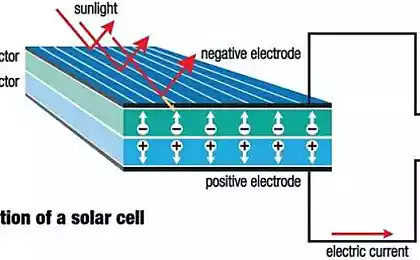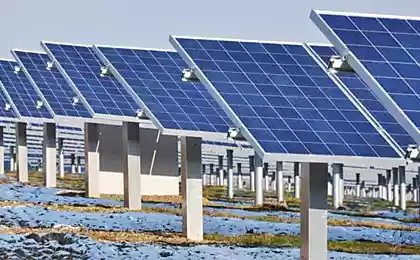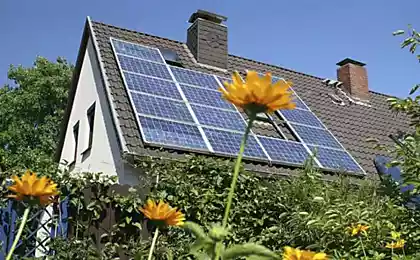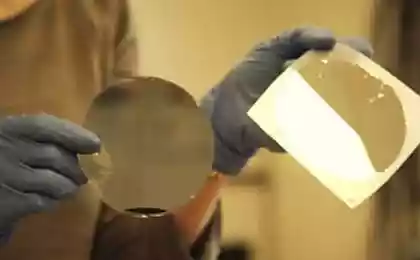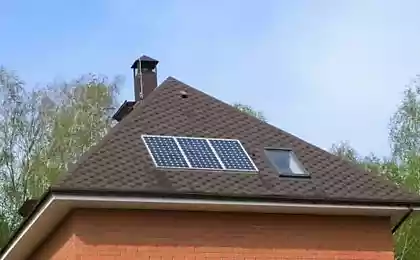491
Scientists have figured out how to reduce the cost of solar panels
Experts from the Agency for Science, Technology and Research of Singapore created an alternative material for solar cells, which can be used to create a more efficient and cheaper solar panels. The study is published in the journal Advanced Materials.
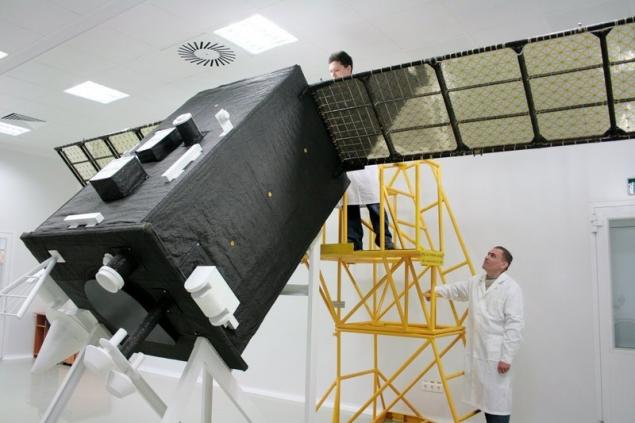
According to the authors, the perovskite is relatively easy to handle and produce, but its effectiveness is 22%, which is close to the batteries on the basis of silicon, whose efficiency is about 25%. "For the treatment of silicon required high temperatures, and working with him it is a very time-consuming. With regard to alternative batteries, they are ineffective in the capture of solar energy, "- the researchers note
. In the new study, the researchers measured the efficiency of solar cells based on perovskite at different temperatures and light intensities. The majority of solar cells including silicon, the efficiency deteriorates with increasing temperature. Nevertheless perovskite batteries operate at high temperatures, with a peak at 57 degrees Celsius. The material is also shown to be highly effective in the charge accumulation by means of electrodes.
Scientists plan to conduct more research and ensure that the lead in the solar cells on the perovskite does not leak, and learn to produce for commercial purposes larger cell.

According to the authors, the perovskite is relatively easy to handle and produce, but its effectiveness is 22%, which is close to the batteries on the basis of silicon, whose efficiency is about 25%. "For the treatment of silicon required high temperatures, and working with him it is a very time-consuming. With regard to alternative batteries, they are ineffective in the capture of solar energy, "- the researchers note
. In the new study, the researchers measured the efficiency of solar cells based on perovskite at different temperatures and light intensities. The majority of solar cells including silicon, the efficiency deteriorates with increasing temperature. Nevertheless perovskite batteries operate at high temperatures, with a peak at 57 degrees Celsius. The material is also shown to be highly effective in the charge accumulation by means of electrodes.
Scientists plan to conduct more research and ensure that the lead in the solar cells on the perovskite does not leak, and learn to produce for commercial purposes larger cell.
To strengthen the body and prolong life: 14 Simple qigong exercises
10 fascinating facts about all sorts of different













